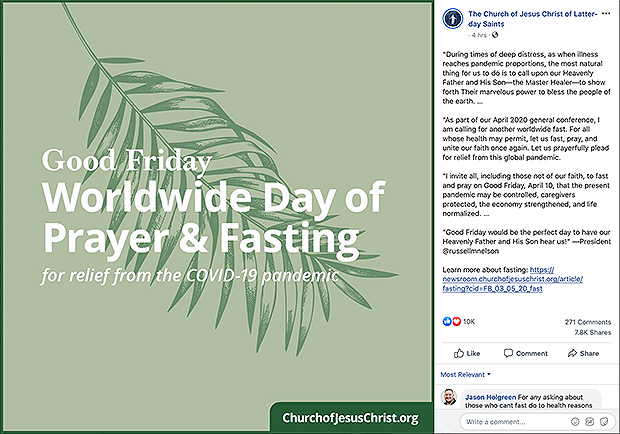Madison Stutz
Insalaco
Classic Civilization 201
May 26, 2020
The Plagues
“Each felt that a far severer sentence had been already passed upon them all and hung over their heads...such was the nature of the calamity, and heavily did it weigh on the Athenians, death raging within the city and devastation without” (Thucydides, 278). This kind of reaction is brought about when a crisis of a plague stretches to overreaching heights. Plagues and diseases all throughout history have always made people panic. They spread quickly and swiftly through a society, taking away not only lives but hope, and when the chaos has finally slowed, the damage has already destroyed too much. As recorded by historians of Greek society, plagues affected people and lifestyles, politics, and wars. Today it’s not much different. We live in a time most interesting. This year of 2020 we have experienced not only as a society but as a world the damaging effects of a pandemic similar to the histories written in Greek literature. Although we are separated by centuries, the plagues in Greek times and now share the similarities that everyday lives are changed, people lose hope and live in fear, and questions arise, however, the compassionate description of humanity is shown also through the darkest of times.
In one of the few writings of a plague concerning the Greek culture, the Iliad provides a small description of the effects it had on society. In the first book, the god Apollo afflicts the people with the plague due to the pleadings of the father of Chryseis, who demands the return of his daughter from Agamemnon. As a result of this, Apollo answers Chryses prayers and punishes the Greek army for many days with a plague. From this, the Greeks are afflicted so greatly, they use every means necessary to find relief. The society not only pleaded and begged Agamemnon to resolve the issue but they also prayed and offered sacrifices to the gods (Homer, 13). For example, Odysseus offers the solution, “Formal sacrifice on behalf of the Greeks. So we may appease Lord Apollo, and may he lift the afflictions he has sent upon us”. (Homer,14). It is clear here of the strong beliefs the people had to the gods and the earning they had in order to be relieved of their sufferings. We see the society do all that they are capable of in order to lift the plague. This fact shows the determination and strength of the people during this trial. While the plague did affect the Greek army and the war in general, society understood that in order to overcome such a challenge, effort and turning to faith would help. Learning from history’s crises in the hard times, society tends to turn to faith and God in order to find answers and solutions.
In the uncertain times of today, our society has come to see the challenging effects of a pandemic, and comparable to Greek society, we also have turned to God. With not being prepared in advance, society has questioned what can be done in order to solve this global issue. People everywhere are doing everything they can to stop the spread of the disease and find help. In these challenging times, we have not only turned to what we already know and understand about diseases but many have also turned to faith, to God. Many people have tried to increase their faith and find peace through the uncertainty. An example of this is The Church of Jesus Christ who has called for two different days of fasting and praying. President of the Church, Russel M. Nelson made the statement in an article written by Sarah Weaver, “Let us fast, pray, and unite our faith once again...Let us prayerfully plead for relief from this global pandemic..unified fasting offers a precious opportunity to “put [their] faith in the Lord Jesus Christ into action at a moment in the world marked by pandemic fears and commotion” (Weaver). From this global effort, millions joined together in this fasting and prayer. Society reached and pleaded with higher power, just how the Greeks had demonstrated in the Iliad. While the Greek’s view on gods differ for us today, this concept of focusing on beliefs and faith in order to find another solution in desperate times is still used today. When hard times occur, often society will turn to beliefs that have been practiced since the beginning.

In the literary work, Oedipus Rex, the plague that takes on another effect on society is the eruptions of commotion, thus resulting in society to unite together. All around the people are frightened and looking for answers. As Oedipus enters the situation, he understands that the people have been praying and fasting for help from the gods and from him. From this idea it is clear that the people unite under Oedipus in order to find the cure. It states, “And now Oedipus, greatest in the eyes of all, we who are here as your suppliants beseech you to find some defense for us” (Sophocles). In this time of crisis, the people come together in order to find relief. In times of difficulty, a society often finds greater support and help when joined together. This fact is also evident in today’s pandemic. In a New York Times article, one writer states, “Ultimately it should be clear: the only long-term strategy to eradicate this virus is a COVID drug and/or vaccine...We have faced grave crises before. But if we want to come out of this unscathed in the long run, we must plan for unprecedented impact and collaboration in the short run. We’ll overcome this crisis, but only if we work together and dig in” (Schwab). In our lives today, many are making changes in our daily lives in order to help slow the spread of corona and reach our ultimate goal together in finding a cure just how the people of Oedipus joined together in order for him to free them.

Another devastating plague that affected Greek society was recorded in the Thucydides' Histories during the Peloponnesian War where Thucydides provides the reader with detailed information on exactly how the people during the darkest times began to change, thus affecting the overall society. As recorded, “people in good health were all of a sudden attacked...no remedy was found that could be used as a specific...for the despair inot which they instantly fell took away their power of resistance” (Finley, 274-276). Instantly society became dark and gloomy as this plague took hold of almost everyone. Hope and faith slowly started to fade as it became worse and worse. With anything this dramatic in a society, it is no wonder that the people began to diminish in morals and any source of hope was gone. With our current crisis today, similarities are apparent. Without a cure available, many are frightened and worried. People all around are starting to question when this will all end. However, even in the midst of terror, humanity is able to show courage and determination. Relating to the history given by Thucydides, he shares, “Yet there were those who had recovered from the disease that the sick and the dying found most compassion” (276). While many in this time did flee and run to save themselves, there were still few who showed incredible amounts of love and compassion towards those suffering. Today, we see this more than ever. While many are uncertain and perhaps scared of what the future holds, people all around are reaching out to help others. From medical professionals, to local business owners, to simply a neighbor down the street, many are coming to the rescue in these unusual times. “Every crisis has its heroes, every disaster its displays of selflessness and sacrifice...and now, amid the coronavirus pandemic, our health-care workers, doctors, nurses, EMTs and support staff who risk becoming infected themselves — who risk infecting their own families — are making extraordinary sacrifices to care for the rest of us” (Marcus).

Within these several literary works, it is demonstrated the great effects a plague can have on society. Many are turned toward faith, while others live in fear. In today’s world, it is not much different. While we are all still human, trials and challenges can bring either the best or the worst in society. However, as learned from these stories, our society can look toward the future in hope as we learn that every plague comes to an end. “Lift the plague...Thus the old priest, and Apollo heard him...all the day long thes young Greeks propitiated the god with dancing, singing to Apollo...and the god was pleased” (Homer, 15).
Work Cited
Sophocles. Oedipus Rex. Translated by J.E Thomas, Prestwick House Inc., 2005.
Homer, and Stanley Lombardo. The Essential Homer: Selections from the Iliad and Odyssey. Hackett Pub., 2000.
Finley, Moses I. The Portable Greek Historians. Penguin Books, 1977.
Marcus, Ruth. “Opinion | These Are the Heroes of the Coronavirus Pandemic.” The Washington Post, WP Company, 27 Mar. 2020, www.washingtonpost.com/opinions/2020/03/27/nurses-doctors-are-heroes-this-moment/.
Schwab, Klaus, and Guido Vanham. “What We Must Do to Prevent a Global COVID-19 Depression.” Time, Time, 9 Apr. 2020, time.com/5817922/science-collaboration-global-covid-depression/.
Weaver, Sarah Jane. “Video: President Nelson Calls for Worldwide Fast on Good Friday.” Church News, 8 Apr. 2020, www.thechurchnews.com/leaders-and-ministry/2020-04-07/worldwide-fast-april-2020-president-nelson-good-friday-180784.
Pictures:



